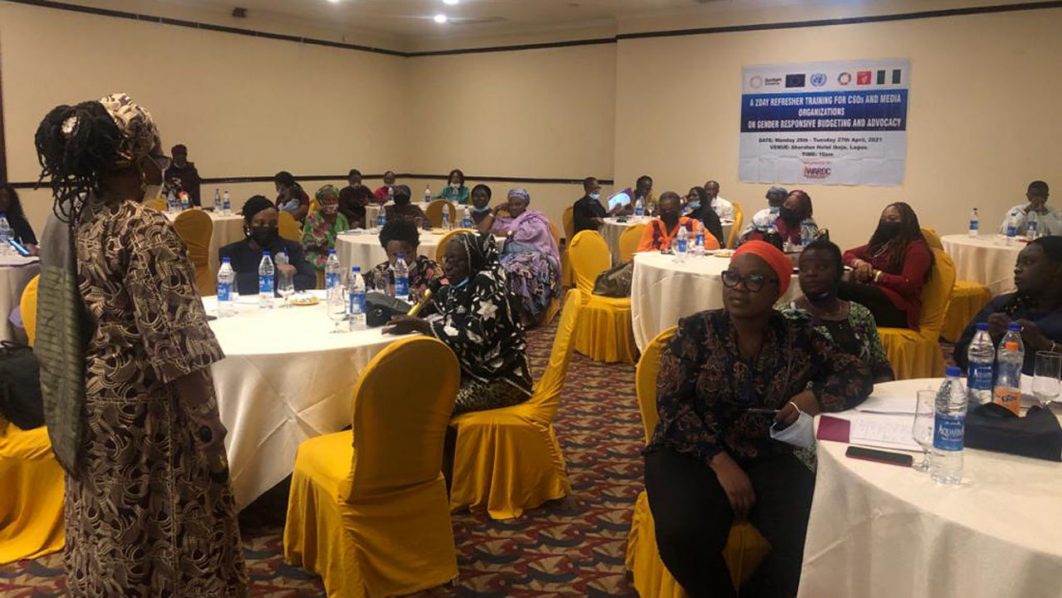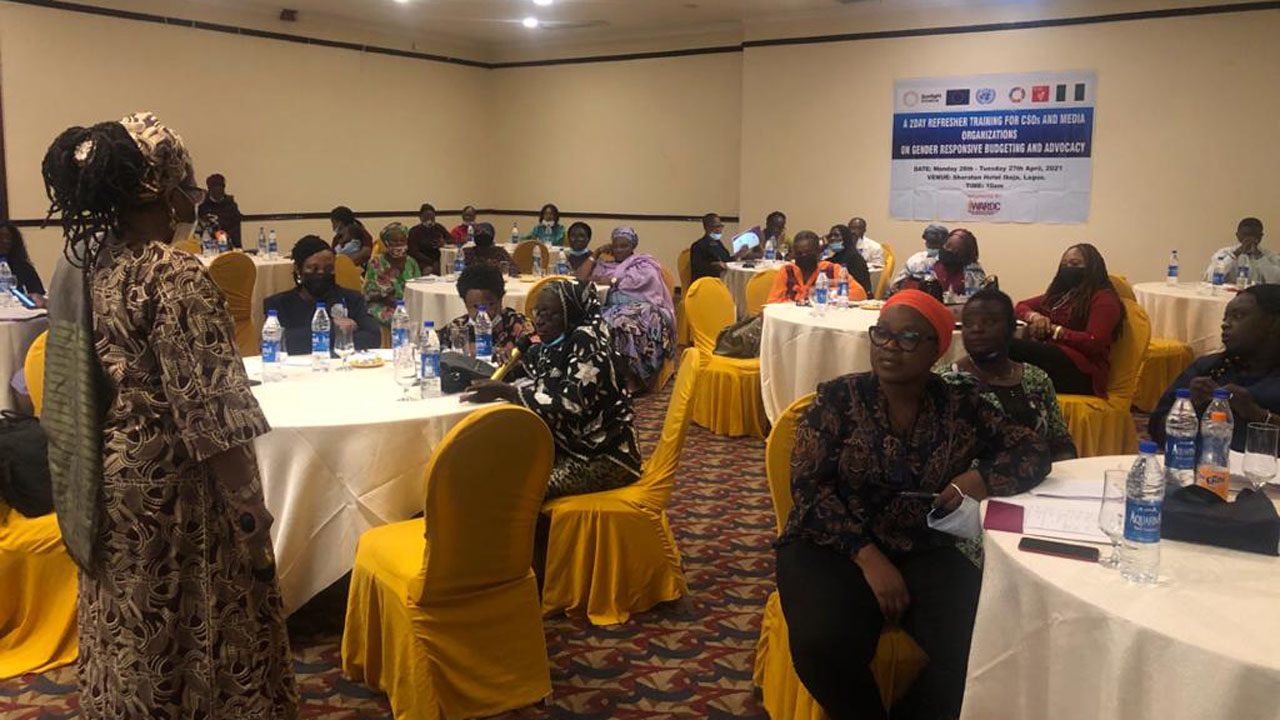
This was the thrust at a two-day refresher training for CSOs and media organisations on Gender Responsive Budgeting and Advocacy in Lagos organised by Women Advocates Research and Documentation Center (WARDC).
[ad]
The training, which seeks to increase awareness on gender budgeting advocacy, is a joint UN-EU Spotlight Initiative project focused on promoting an empowered civil society and autonomous women’s movement.
Nigeria’s representative on the UN-CEDAW Committee and former Head of Gender for the Commonwealth Secretariat, Esther Eghobamien-Mshelia, and facilitator at the training noted that the training would help CSOs Demand a gender-responsive budget, which is only achievable if they understand it.
“We are not asking for a women’s budget, we are asking for a budget to respond to the needs of men, boys, girls, and women. The budgets are set expenditure patterns for the government. If the government has made a plan, how do you ensure that those plans are delivered and lead to inclusive societies? The ultimate goal of gender-responsive budgeting is that there is inclusion and people are not excluded in the expenditure pattern.
[ad]
“We are teaching them constructive engagement with the government because the government is elected by the people. They promised to do what you want, but you must go back to them with a meaningful demand and understand that their envelopes are not endless. There are many ways to balance how both genders benefit from governance; you can decide to employ women engineers and ensure that some of the contracts go to women. There are many ways to make your planned investment delivered by gender. It is important to find a way to convince the government to take you onboard and in many countries, this is the way of democratic governance.”
The gender policy appraisal and mainstreaming expert who is also the founder of Women Arise Development and Humanitarian Initiative (WADHI) noted that there is no sector or section of the budget women cannot make a demand for.
“What women need from a sector is not what they need from another sector. So, it is not cast in stone. In some areas, women have done well; they can ask that in the market we can have crèches for our children, or we can be on the management committees of the market as a rule so that women’s voices and issues can be tabled there. You ask for concrete things that are doable. The demand for women is not to exclude the others; it is to build better societies.”
[ad]



